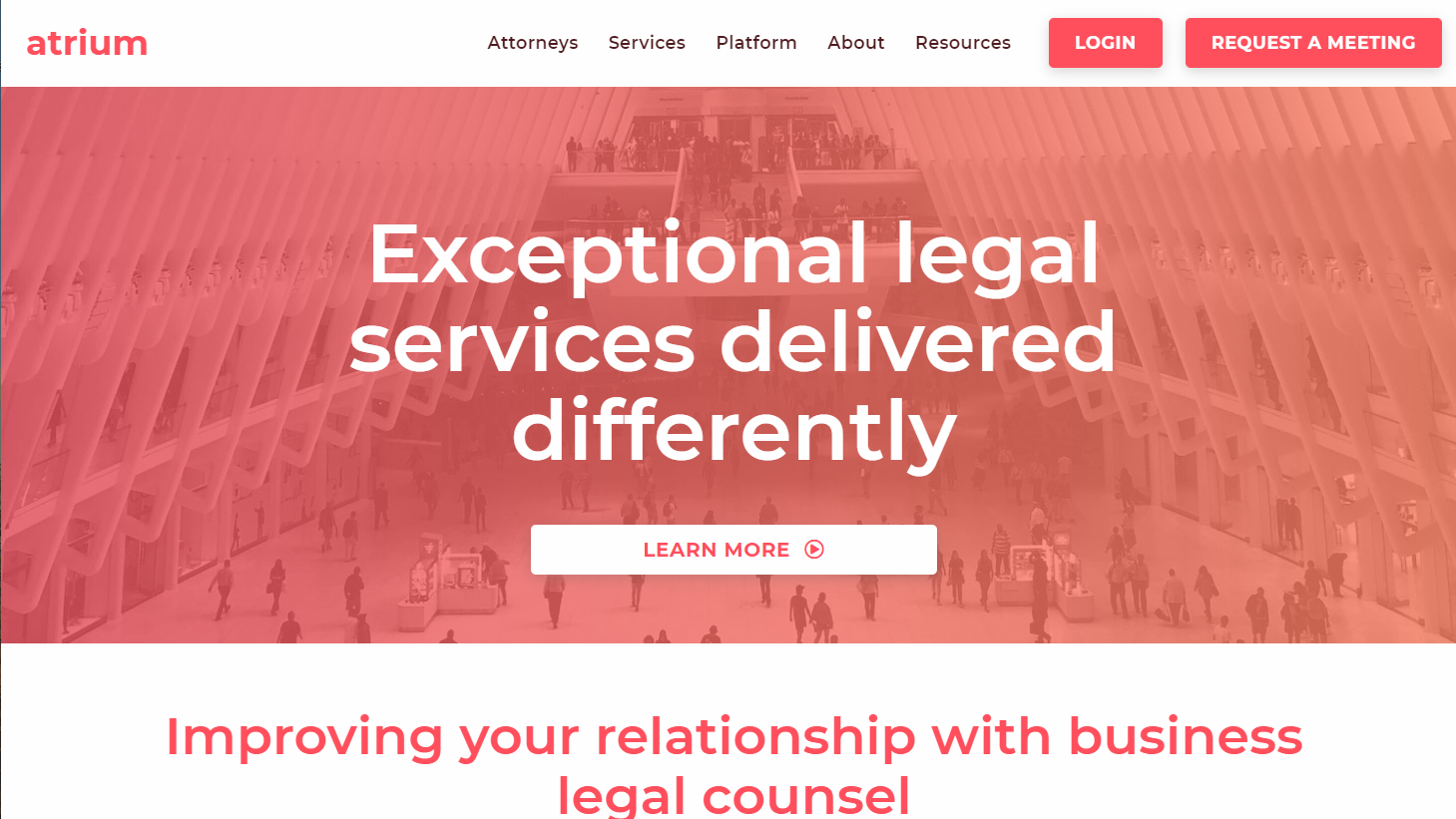On Jan. 12, this blog broke the news that Atrium, the company that said it would “revolutionize legal services” through its dual-entity model of a law firm and a technology company, was letting go most of its legal staff and would pivot towards “building a professional services network dedicated to founders.”
Today, founder Justin Kan said he has shut down the rest of the company and laid off all its roughly 100 remaining employees, according to an exclusive report by Josh Constine at TechCrunch.
The separate Atrium law firm, which now consists of just a handful of lawyers kept on after the January layoffs to serve existing clients, will continue to operate, Techcrunch reports.
“I’m really grateful to the customers and the team members who came along with me and our investors,” Kan told TechCrunch. “It’s unfortunate that this wasn’t the outcome that we wanted but we’re thankful to everyone that came with us on the journey.”
Kan, who previously founded Twitch and sold it to Amazon for $970 million, launched Atrium in 2017 with much fanfare, saying it would “revolutionize legal services” through its dual-entity model of a law firm and a separate-but-connected entity to provide back-end services and technology.
When it launched, with an initial $10 million round of funding, I questioned in my Above the Law column whether it was a case of Clearspire déjà vu, recalling the demise of the strikingly similar dual-entity firm Clearspire, which opened in 2010 and shut down four years later.
But a year later, the company raised a whopping $65 million in a round that included some of the biggest names in venture capital, with Andreessen Horowitz leading the round and General Catalyst, YC Continuity Fund, and Sound Ventures as co-investors.
Then, last April, just weeks after I interviewed him on my LawNext podcast, Atrium’s cofounder and managing partner Augie Rakow, a former partner at Orrick, Herrington & Sutcliffe, left the company.
After laying off most of its lawyers in January, Kan said the company would pivot to a new focus. “In our next phase of growth, we will continue expanding outside of legal services as trusted startup advisors by building a professional services network dedicated to founders.”
But Kan told TechCrunch that it was difficult to regain momentum after making that pivot.
As I explained in a 2018 post, the idea behind Atrium was that it would provide corporate clients with a compelling alternative to traditional large firms, with Atrium’s lawyers focusing exclusively on practicing law, while Atrium LTS — the legal technology services company — would handle all operations for the firm, even including marketing, and would develop and operate software to streamline the firm’s workflows.
 Robert Ambrogi Blog
Robert Ambrogi Blog